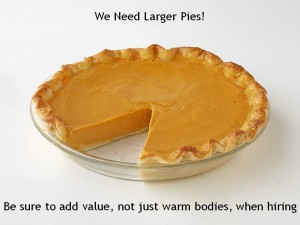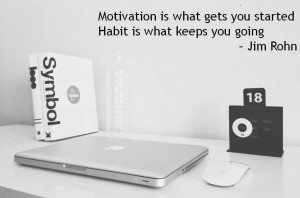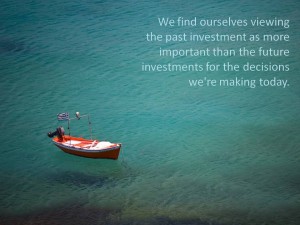Yesterday I started a two-part series on goals, this will have to be finished tomorrow because I have too pertinent of a topic that I feel I have to cover after yesterday’s events. Sometimes life slaps us in the face while we are busy planning it… This is about how to lose good people.
I spoke with three different people that work for the same company (two separate branches) yesterday that were all to the breaking point with their employer. I know the company and most of their direct supervisors so I can honestly say that their claims are not far fetched. Plus they have no reason to lie to me, I am an outsider. All three of these people just came to me asking advice on how to handle their situations because they felt they were not being treated fairly. More than anything they just wanted a sounding board.
I heard things like: overworked, no respect given, no consideration for promotions when outsiders were hired with less experience, 9 days late on paychecks, firings that lasted two weeks before the boss came to their senses, threatening jobs regularly, expecting overtime and additional work as the norm, and the list goes on.
But it’s sad. Sad that each of their situations have come to this. Sad that they can’t take these troubles to their supervisors. Sad that even if they did take it to their supervisors they will be met with degrading comments like, “What are you bitching about?” or “You got a raise recently didn’t you? So yes, that is your job” or my personal favorite, “I don’t have time for this.” And the worst part is that these are not minimum wage people, they have a combined 10+ years of experience in a company that has just celebrated it’s 7 year-anniversary.
If this is how we treat our people, our tenured people, how can we ever expect to grow companies into anything more than a loose house of cards? What happens when times get tough? These will be the first to go; happily.
This is not the path to success.
Success comes from treating our people right: Going out of our way to make sure they are happy in their positions. Listening when they have troubles or feedback. Communicating without condescension when we want or need something of them. Buying them lunch ‘just because’ instead of trying to manipulate people into owing us something. Telling people they’re doing a great job when accolades are earned. Paying them on time (man, I really thought that one was obvious).
When we treat people like this, magical things happen. People stay late, they recruit their friends for the company, mountains are moved, people want to come to work, petty issues float away before they materialize, and we set the foundations for concrete organizations that will last much longer than ourselves. If we have great people we can leave without everything falling apart.
People matter. If you are guilty of the actions in blue you can start turning things around by telling someone how much they are appreciated today with an earnest heart. And if you really want to make a turnaround you can do it every day. Treat people with respect and keep an eye on productivity. There is a direct correlation between how people are treated and their output.





